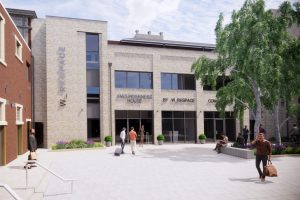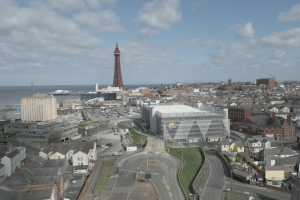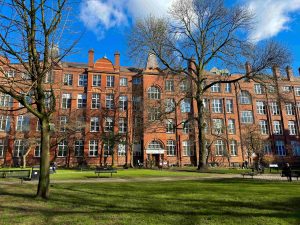Etihad Campus set for green light

MANCHESTER City Council is set to give the green light to a planning application submitted by Manchester City Football Club for its sprawling new Etihad Campus complex.
The club and its agents, Drivers Jonas Deloitte, will have its appication for outline planning permission for the 80 acre site – the centrepiece of which will be a 7,000-seat arena – heard by the city council’s planning committee tonight.
The site will also contain player and youth accommodation, a media centre, 12 full-size and two half-size football pitches, an Institute for Sports Medicine, and a new 600-place sixth-form college for use by the local community in the South West corner of the site. A new footbridge linking diagonally across from the site to the Etihad stadium has also been proposed.
The council’s head of planning is recommending that the committee state they are “minded to approve” the application, subject to certain conditions. These include free use of its sixth-form college for students graduating from Manchester schools, a £3m contribution for a new community pool and use of the 7,000-seat youth arena for up to ten fixtures involving local clubs and schools each year.
Manchester City Football Club first announced plans for the campus on the former Clayton Aniline chemical works site back in July and has since undertaken a three-month consultation process with the local community.
British Waterways has objected to the scheme. It argued the application “does not fully recognise the potential of the Ashton Canal as a green infrastructure asset and sustainable transport route”, as set out in various council strategy documents, including the unitary development plan.
It had argued that the club should pay for improvements to the canal towpath next to the site, given the increased use by people visiting the youth arena, the new Institute of Sports Medicine and the sixth-form college.
It pointed out that from April 2012, a new charity called the Canal & River Trust would be responsible for maintaining English and Welsh waterways.
“British Waterways believes it is fundamentally unacceptable that the new charity should effectively be required to subsidise a commercial development of this scale and nature by covering the cost of the necessary improvements to the waterway infrastructure,” it said.
Manchester City Football Club notified more than 3,000 business and personal addresses in the proximity of the campus of its plans. It has not received objections from any of them.
Overall, the council’s head of planning argued that the scheme “will contribute towards the continuing integrated approach to regeneration of East Manchester”.
He added that the site had been derelict for some time, and that the Etihad Campus “will form a positive visual landmark within this part of East Manchester and provide additional employment opportunities both through the development’s construction and operation phases.”








